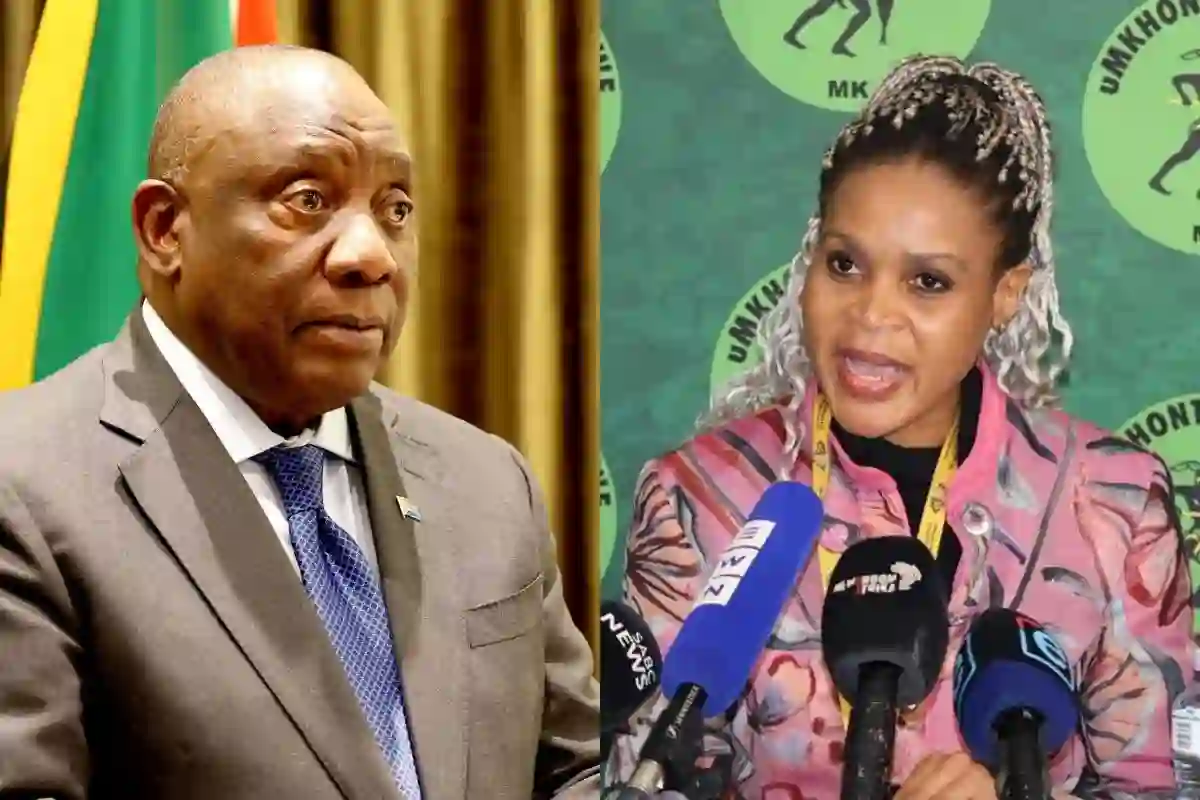The political heat in South Africa is rising as the uMkhonto weSizwe (MK) Party sticks to its word and moves forward with a formal challenge against President Cyril Ramaphosa.
After weeks of issuing warnings and ultimatums, the party is making it official: they want him out.
Ultimatum Ignored, Legal Action Launched
This all started with a demand from the MK Party, asking President Ramaphosa to either step down or take back remarks he made in a national address, particularly regarding Police Minister Senzo Mchunu.
The president didn’t respond by the MK Party’s deadline of 18 July — and now, they’re pushing ahead with legal steps.
At a press conference on Tuesday, 22 July, party leaders laid out their next moves, including plans to file a motion of no confidence in Parliament.
Senior Leaders Take the Lead
MK Party’s deputy president and Parliamentary leader John Hlophe, along with chief whip Colleen Makhubele, took charge at the briefing.
They were joined by a lineup of party MPs including Des Van Rooyen, Sanele Mwali, Wesley Douglas, Brian Molefe, and Sibongiseni Majola — a show of unified strength behind the motion.
Makhubele explained that their call for Ramaphosa’s removal stems from what they see as his failure to hold Police Minister Mchunu accountable and to protect South Africa’s vulnerable populations.
Marching for Change and Demanding Accountability
The motion comes hot on the heels of the MK Party’s Mandela Day march, where protesters called for Ramaphosa’s resignation.
The party says that public show of support gave them added momentum and made it clear that many South Africans are demanding justice and stronger leadership.
What a No Confidence Motion Actually Means
Filing a motion of no confidence is no small thing — it’s a serious tool that Members of Parliament use when they believe the president or their Cabinet no longer has the confidence of the legislature.
Under Section 102 of South Africa’s Constitution, any MP can propose such a motion.
However, the speaker of the National Assembly has to review it, consult with the leader of government business and the ruling party’s chief whip, and confirm that it meets all necessary rules.
Once it’s cleared, the motion is officially scheduled for debate and voting.
If it passes, it could force the president — or even the entire Cabinet — to step down.
Will the Motion Gain Ground in Parliament?
The big question now is whether this motion will actually get enough traction in Parliament.
The MK Party has made its move — but support from other parties will be crucial if the motion is to have any real impact.
So, what do you think? Will Parliament rally behind this motion of no confidence, or will it fizzle out?
